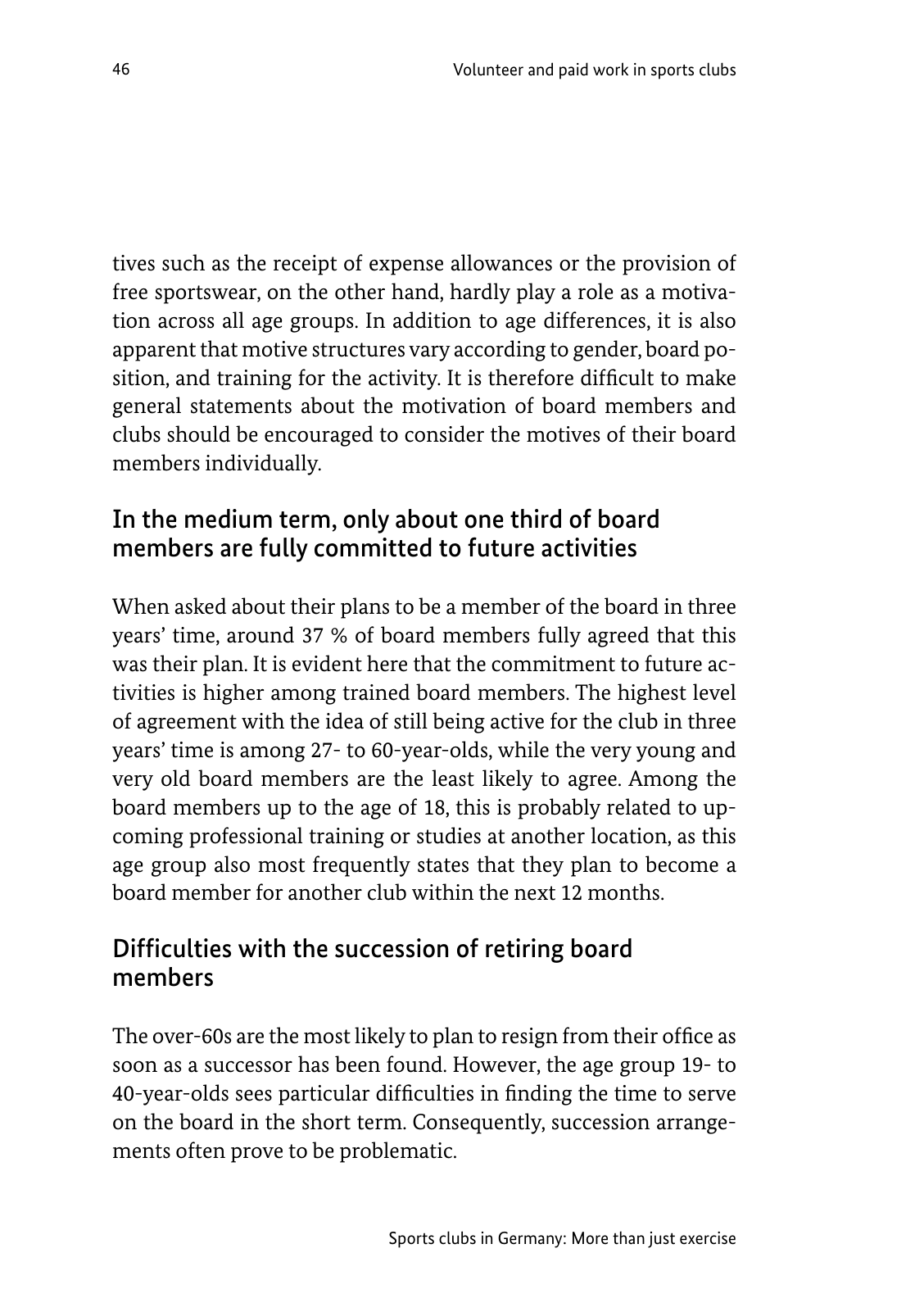46 Volunteer and paid work in sports clubs Sports clubs in Germany More than just exercise tives such as the receipt of expense allowances or the provision of free sportswear on the other hand hardly play a role as a motiva tion across all age groups In addition to age differences it is also apparent that motive structures vary according to gender board po sition and training for the activity It is therefore difficult to make general statements about the motivation of board members and clubs should be encouraged to consider the motives of their board members individually In the medium term only about one third of board members are fully committed to future activities When asked about their plans to be a member of the board in three years time around 37 of board members fully agreed that this was their plan It is evident here that the commitment to future ac tivities is higher among trained board members The highest level of agreement with the idea of still being active for the club in three years time is among 27 to 60 year olds while the very young and very old board members are the least likely to agree Among the board members up to the age of 18 this is probably related to up coming professional training or studies at another location as this age group also most frequently states that they plan to become a board member for another club within the next 12 months Difficulties with the succession of retiring board members The over 60s are the most likely to plan to resign from their office as soon as a successor has been found However the age group 19 to 40 year olds sees particular difficulties in finding the time to serve on the board in the short term Consequently succession arrange ments often prove to be problematic

Hinweis: Dies ist eine maschinenlesbare No-Flash Ansicht.
Klicken Sie hier um zur Online-Version zu gelangen.
Klicken Sie hier um zur Online-Version zu gelangen.